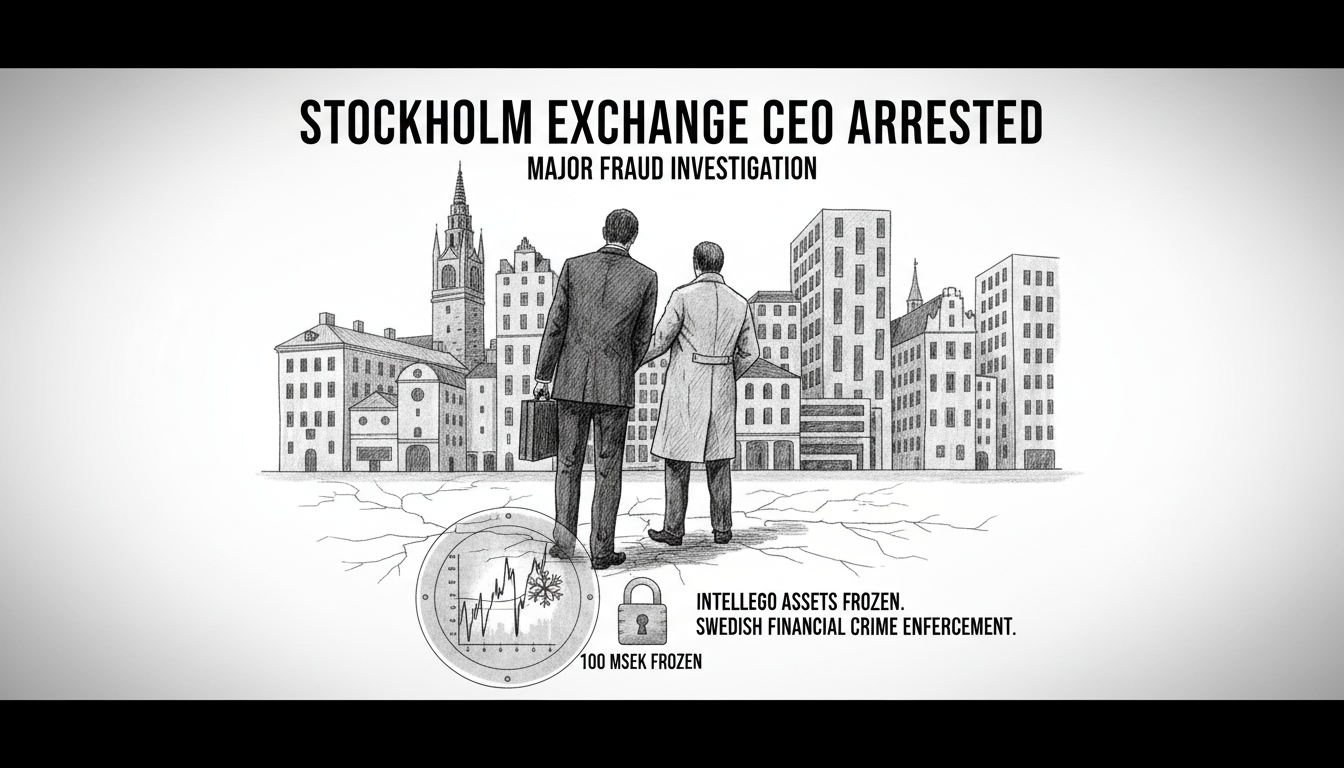Claes Lindahl, CEO of publicly traded company Intellego, faces arrest following a raid by Sweden's Economic Crime Authority. The company confirmed the development in an official statement. Authorities executed the operation as part of an ongoing investigation into serious fraud allegations.
The Economic Crime Authority secured a court order freezing 100 million Swedish kronor from the company's accounts during the operation. Company representatives acknowledged the asset seizure in their press release. This represents one of the larger corporate fraud investigations in Sweden's financial sector this quarter.
Sweden maintains strict anti-corruption laws that apply equally to corporate leaders and public officials. The Economic Crime Authority, known as Ekobrottsmyndigheten, handles complex financial crimes across the country. Their involvement typically indicates substantial evidence has been gathered before taking public action.
Corporate fraud cases in Sweden often involve lengthy investigations before arrests occur. The immediate asset freeze suggests authorities believe they have strong evidence of financial misconduct. Such measures aim to prevent potential dissipation of company assets during legal proceedings.
International investors monitoring Nordic markets should note Sweden's robust corporate governance standards. The country consistently ranks high in transparency international reports. This case demonstrates that Swedish authorities actively enforce financial regulations regardless of a company's market position.
Publicly traded companies in Sweden operate under strict disclosure requirements. The swift announcement about the CEO's arrest reflects these transparency obligations. Market regulators require immediate disclosure of events that could significantly impact shareholder value.
Similar corporate investigations in recent years have led to substantial reforms in Sweden's financial oversight. Previous cases involving listed companies resulted in tighter reporting requirements and increased board accountability. The outcome of this investigation could influence future corporate governance regulations.
Swedish corporate law imposes personal liability on company directors for financial misconduct. CEOs can face both criminal charges and civil lawsuits from affected shareholders. The legal process typically moves systematically through preliminary investigations before formal charges are filed.
This development comes during increased scrutiny of corporate governance across Nordic markets. Regional financial authorities have coordinated more closely on cross-border investigations in recent quarters. The case may prompt broader discussions about executive accountability in publicly listed companies.

